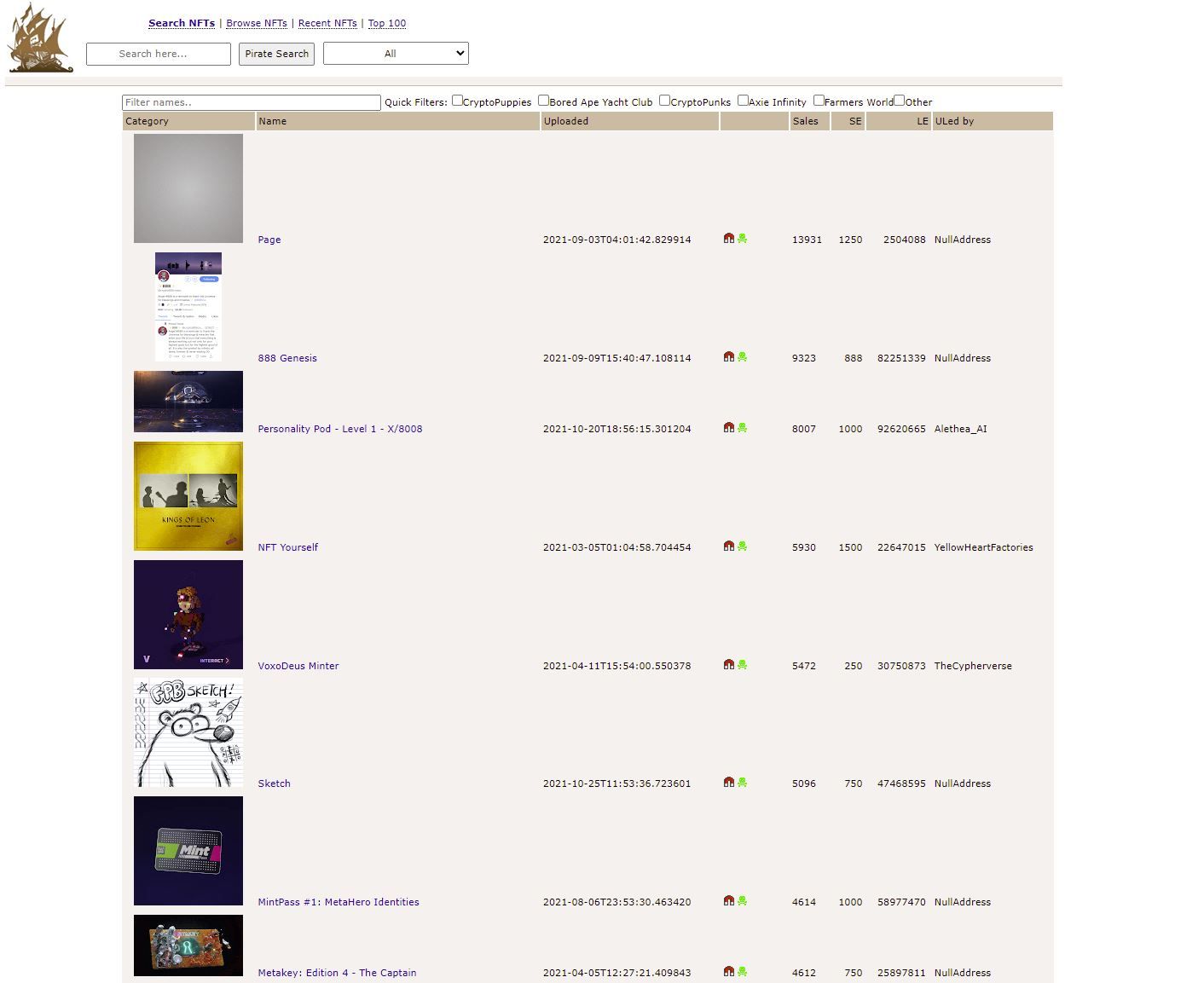The NFT world was shaken to its core this week after the beloved images of collectors and investors alike were made available for the first time on a new download site, The NFT Bay. Not, really. Users have been right-click saving images and GIFs since the early days of digital art (anyone still using DeviantArt?) and all of the images are freely accessible through a bit of blockchain sleuthing or, more easily, through OpenSea.

A number of normie media outlets jumped on the news, declaring that 18 terabytes of NFTs were finally made accessible to anyone through a hosting service. Much of the attention recalled the original download services from the early 2000s like The Pirate Bay, which provides an index of media and software, and is still in operation. At one point, torrent and content distribution sites were seen as one of the major (if not infamous) utilities of the still-young internet, allowing users to illegally access and download music, movies and games. Services like Napster entered the mainstream discussion as Web 1.0 was transitioning into 2.0, providing an easier flow of information and data.
It’s easy to forget how fundamental these building blocks were for developing the Web as we know it today. Without Napster, we might not have had the Pirate Bay (let alone the iTunes Music Store, which legitimized sales through authorized channels). Not only do such services provide accessibility, but they also—possibly inadvertently—force preservation, particularly for assets that are not securely or permanently stored on decentralized servers.
As our understanding of intellectual property continues to develop, there will be new and novel ways of interacting with digital assets. NFTs have demonstrably shown that scarcity and uniqueness can assign tremendous value to desirable assets. Of course, anyone can download or save anything, just as they’ve always done since the early days of the Internet (albeit a bit more easily now for large numbers of NFTs), but assigning value to these assets has and will continue to revolutionize how content is generated, collected and preserved. And that doesn’t even begin to address the bragging rights of ownership in the digital realm through online communities and metaverses, which may one day rival or surpass that of the physical world.
For now, the rest of the world hasn’t yet quite grasped the significance of digital ownership, which makes this space all the more exciting and lucrative.


